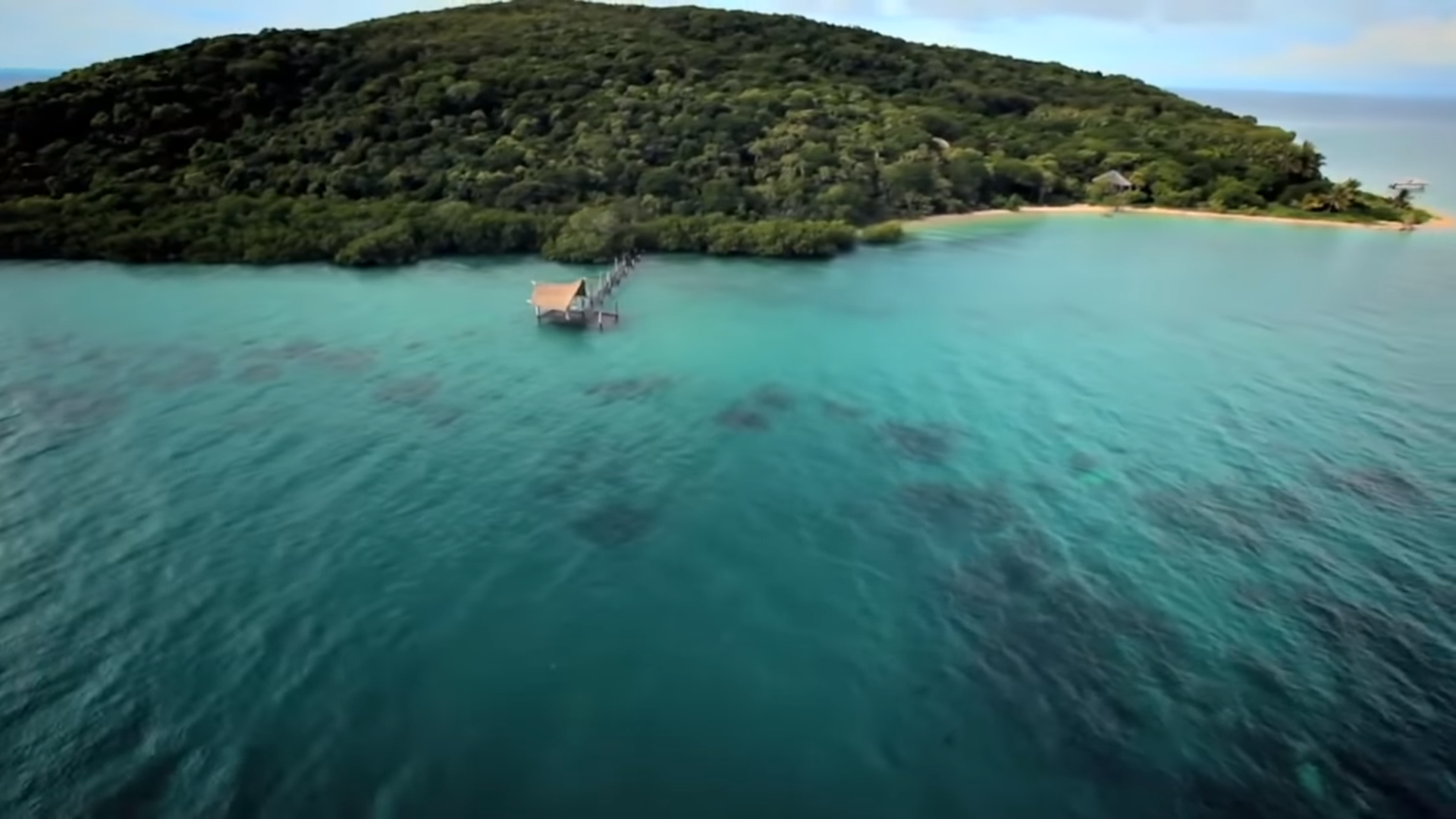Australian snorkeller survives crocodile attack by ‘levering its jaws’ off his head
Incident is fifth crocodile attack in almost eight weeks in North Queensland

An Australian man dramatically escaped an attack by a saltwater crocodile after prising its jaws off his head.
Marcus McGowan, 51, from Brisbane, was snorkelling at a luxury private island resort on the Great Barrier Reef in Australia when he was attacked.
Mr McGowan was bitten on the hand and head, suffering lacerations during the deadly attack on Saturday off Haggerstone Island in Cape York, Queensland.
It was the fifth such attack by a crocodile in Far North Queensland in the past eight weeks.
Mr McGowan, who was part of a tourist group during a snorkelling trip about 28km from the exclusive resort, has shared the details of the near-fatal attack, saying he ended up with his head trapped in the grips of the predator’s jaws.
“I was attacked from behind by a saltwater crocodile, which got its jaws around my head,” he said in a statement.
“I thought it was a shark, but when I reached up, I realised it was a crocodile.
“I was able to lever its jaws open just far enough to get my head out.”
The crocodile, that is still being sought by the environment department officials, returned to attack Mr McGowan a second time, that led to him suffering a bite on his hand this time.
“The crocodile then attempted to attack me a second time, but I managed to push it away with my right hand, which was then bitten by the croc,” he added.
Mr McGowan said he was able to “escape the crocodile’s grip once again” and swam towards the boat which came to his rescue after hearing his screams.
Members of the group helped him onto the boat and then to the mainland, where he was transported to Cairns Hospital by the Royal Flying Doctor Service.
Mr McGowan believes that the saltwater crocodile was probably a juvenile, perhaps three metres (10ft) long, else it would have been difficult for him to escape the attack.
Saltwater crocodiles are the largest reptiles in the world and can grow up to more than 20ft.
The Queensland Department of Environment has launched an investigation and is attempting to locate the crocodile responsible for the attack.
“Crocodiles in the open ocean can be difficult to locate as the animals often travel tens of kilometres per day,” the department said.
“It is important that crocodile sightings and crocodile incidents are reported in a timely manner.
“We investigate all crocodile sighting reports that we receive.”
The snorkeller said he did not wish ill on the crocodile, saying he was “simply in the wrong place, at the wrong time”.
“I’m a keen surfer and diver and understand that when you enter the marine environment, you are entering territory that belongs to potentially dangerous animals, such as sharks and crocodiles,” he said.
“I’m just grateful it was me and not one of the kids or ladies in the group.”
The incident took place at Haggerstone Island Resort, an exclusive, family-owned resort spanning 600km north of Cairns. The entire island can be rented for AUD$7,600 (£4,026) per night.
It was the fifth attack by the crocodiles in the region known as “Croc Country” since April, reported ABC News.
In February, wildlife authorities killed a 4.2m crocodile after it attacked a man and ate his dog from their boat ramp in the south of Cooktown.
In April, the remains of Kevin Darmody, a pub landlord, were discovered after he disappeared while fishing in Kennedy’s Bend, a well-known saltwater crocodile habitat at Lakefield National Park.
His remains were found inside two crocodiles following two days of searches.
The population of crocodiles has increased to around 30,000 now since they were declared a protected species in 1970. Their population has bounced back after they were hunted to extinction, leaving their population to just some 5,000 animals.
Join our commenting forum
Join thought-provoking conversations, follow other Independent readers and see their replies
Comments


Bookmark popover
Removed from bookmarks